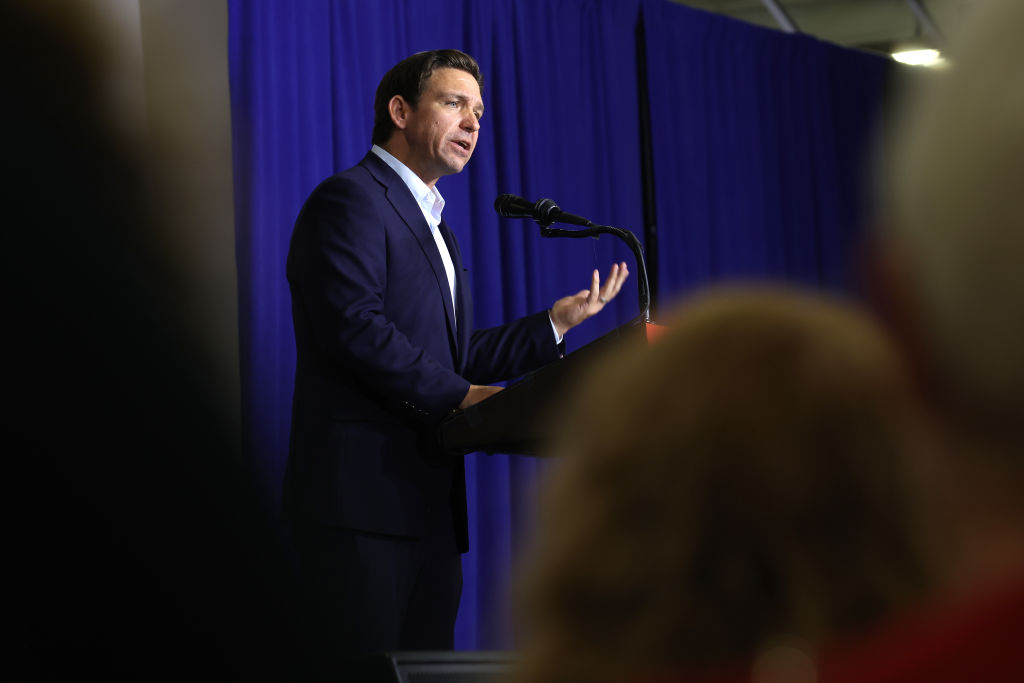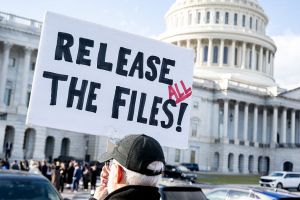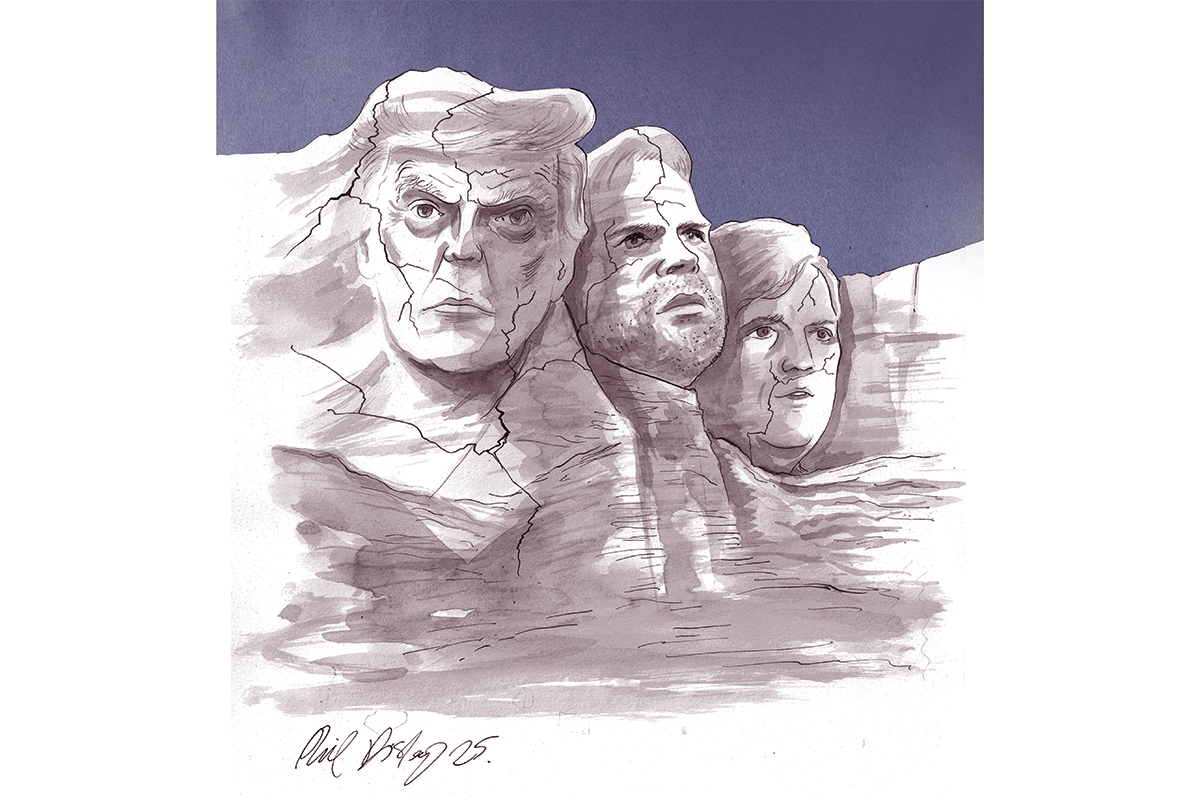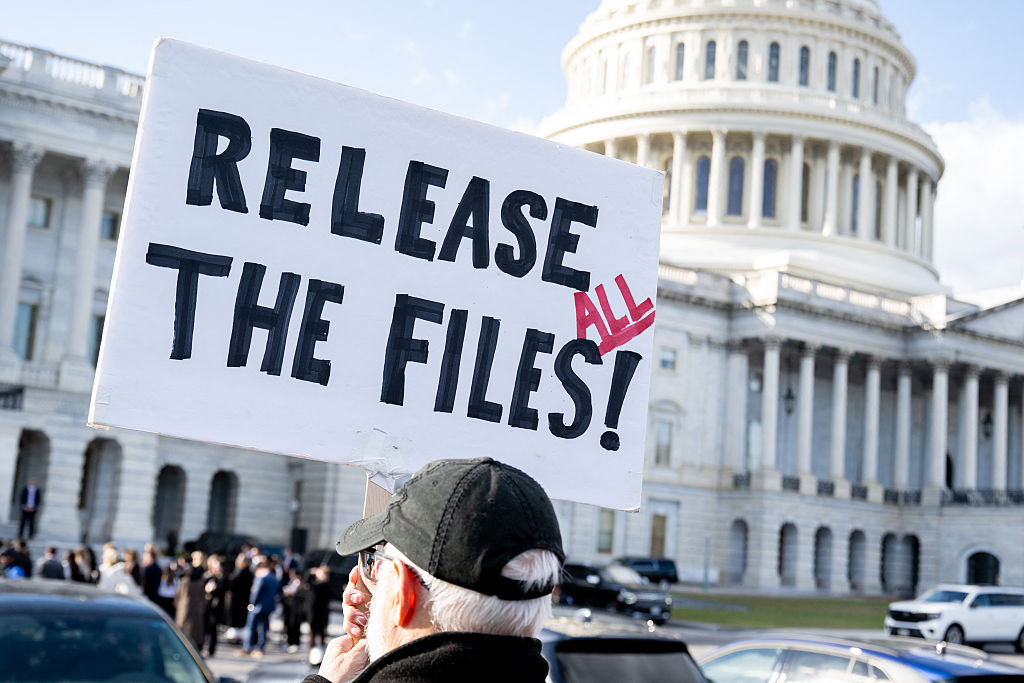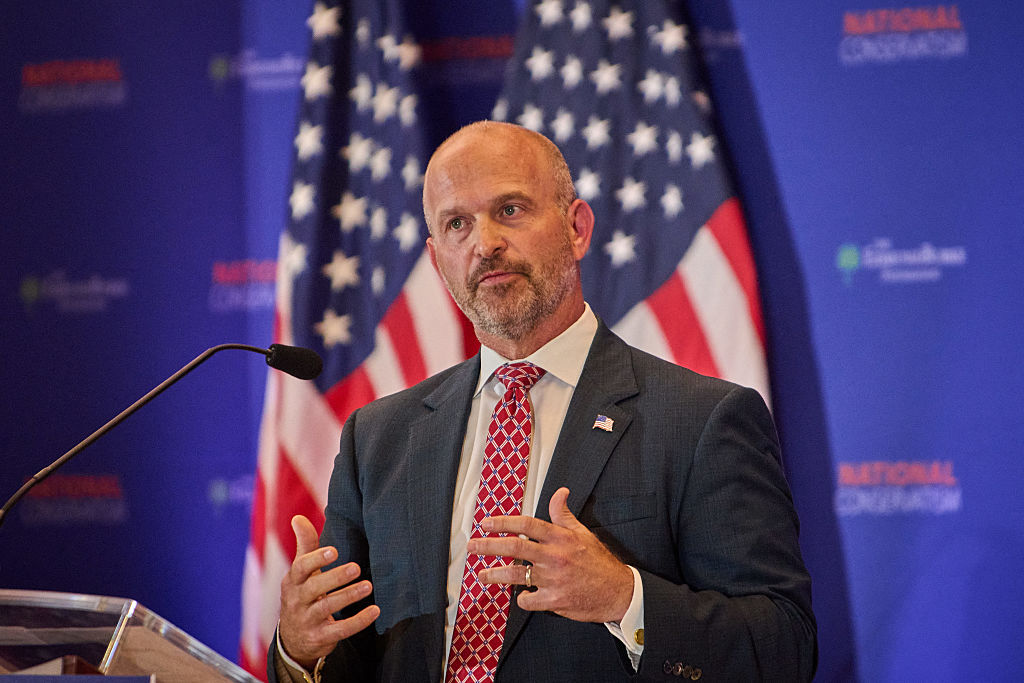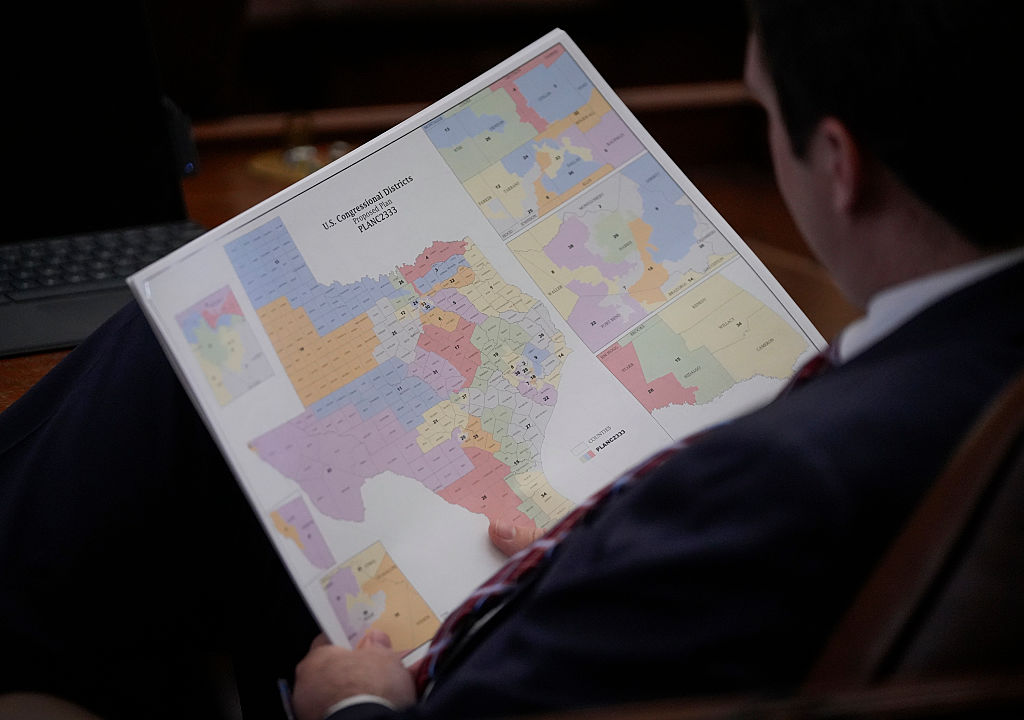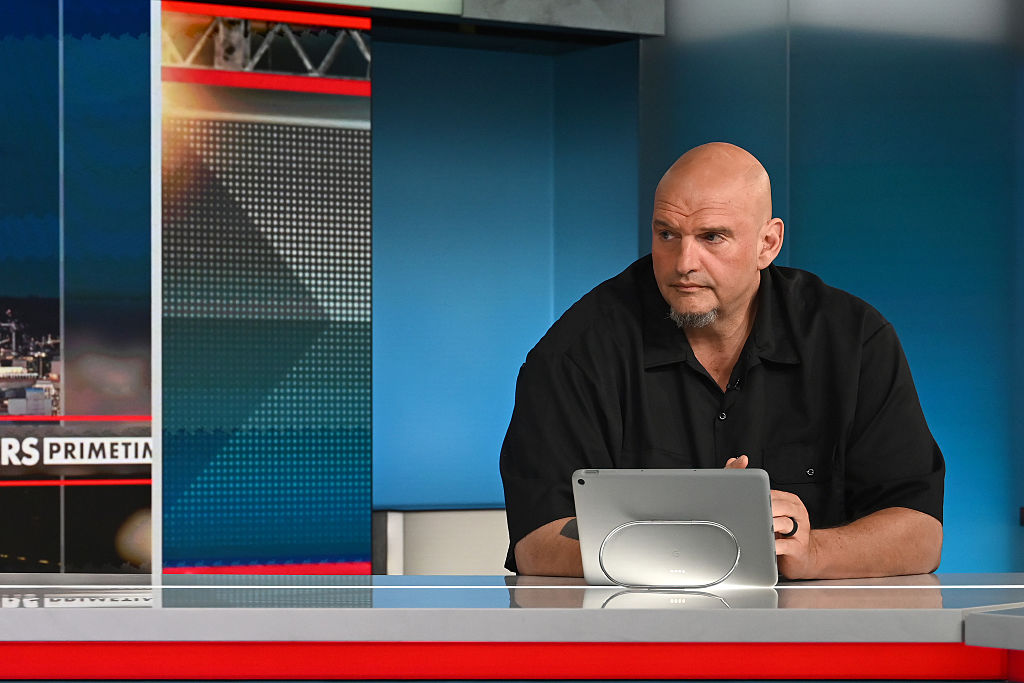Welcome to Thunderdome, where the mood is disappointment: after all that speculation, it really does look like Donald Trump is going to skip the first debate. This is not the no-holds-barred battle we were promised! The people demand to be entertained, and in the midst of a Hollywood strike, not even politics can save us from the August doldrums. For shame! (For more on next week’s Republican debate and what defines success for the candidates, listen to the Thunderdome podcast here.)
Maybe there’s a WWE-style last minute turn, but as things stand, Ron DeSantis will be the biggest target on stage — a wounded animal others may try to put down for good. But for DeSantis, his odd super PAC-led setup means his team’s favored strategy is already publicly known, posted online and delivered via the New York Times on a platter for all to see:
A firm associated with the super PAC that has effectively taken over Mr. DeSantis’s presidential campaign posted online hundreds of pages of blunt advice, research memos and internal polling in early nominating states to guide the Florida governor ahead of the high-stakes Republican presidential debate next Wednesday in Milwaukee.
The trove of documents provides an extraordinary glimpse into the thinking of the DeSantis operation about a debate the candidate’s advisers see as crucial.
“There are four basic must-dos,” one of the memos urges Mr. DeSantis, whom the document refers to as “GRD.”
“1. Attack Joe Biden and the media 3-5 times. 2. State GRD’s positive vision 2-3 times. 3. Hammer Vivek Ramaswamy in a response. 4. Defend Donald Trump in absentia in response to a Chris Christie attack.”
The documents were posted this week on the website of Axiom Strategies, the company owned by Jeff Roe, the chief strategist of Mr. DeSantis’s super PAC, Never Back Down.
How to interpret this blatant telegraphing of plans? It’s bizarre and unwise, like giving away the script of your team’s opening play series. It allows and encourages other candidates to anticipate the strategy and respond to it as inauthentic in much the way Chris Christie ridiculed Marco Rubio’s robotic pre-planned script. DeSantis is walking into a trap: either he follows his team’s advice, risking similar ridicule, or he ignores it, and throws out all that research his donors paid for to shoot from the hip. Either way, the storyline coming out of the debate will be about the minutiae of his performance and how well it hewed to the super PAC’s favored strategy or followed the advice of debate coach Brett O’Donnell — not if he silenced critics and came across as truly presidential.
The biggest takeaway from the memo dump, though, might be that the super PAC is sending the message to the DeSantis campaign and the candidate that Vivek Ramaswamy is a real problem for him. DeSantis needs to be aware of that, and understand that increasingly, punching at the young entrepreneur isn’t punching down — they’re in the same weight class now.
How will Trump counterprogram?
So what will the former president be up to instead? In our Bad Press newsletter, Stephen L. Miller looks at the last skipped debate precedent, and suggests Trump needs a co-conspirator in the media:
In January 2016, Trump boycotted a GOP debate after Fox News refused to remove Megyn Kelly as a co-moderator. This was after the first debate where Kelly called out comments Trump had made about women previously. Trump’s campaign later released a statement announcing a rally for veterans that countered the debate directly, which was carried by Jeff Zucker’s CNN. Trump also sat with Morning Joe hosts Joe Scarborough and Mika Brzezinski, his favorite primary media hosts who granted him forty-one separate interviews during the primaries alone, ten of which were simply call-in segments. Trump is clearly deploying the same playbook he did in 2016, hoping a rival network takes his bait, which, as we learned to the tune of $3 billion in free unearned media during the 2016 primaries, they could not resist doing. The only questions are which network and which anchors? Will NBC offer up Chuck Todd for counterprogramming? Maybe CNN hosts another downhill with Anderson Cooper, or a furrowed-browed Jake Tapper who sets his Big Lie throat-clearing aside for Trump. Perhaps Carlson, who holds his own personal beef with Fox, takes Trump up on his offer.
If all else fails, maybe Trump holds another rally, which the networks will begin covering again, or moves his legally ill-advised Georgia presser, scheduled for 11 a.m. Monday, to the 23rd to counter the debate. No matter what happens, when it comes to Trump, the media not only lacks restraint, but has acted in the past as a co-conspirator in their elevation of his candidacy. That appears to once again be the strategy: all Trump, all the time, 24/7. Trump knows his gambit of sitting out the debates is contingent on the cameras following him instead of the field. The only question that remains: who will be his dance partner this time?
Are Republicans tiring of indictments?
This week saw the fourth indictment come down for Donald Trump (and many associates) from the long anticipated case in Georgia. This one is a sprawling indictment that looks messy and expensive for all involved, in yet another indication that the GOP’s 2024 presidential effort — assuming Trump is the nominee — will be all about paying all the lawyers.
A more important question may be if indictment fatigue is setting in among Republican voters, or at least enough of them that it could prove damaging next fall. Semafor reports on a new poll:
It finds that 24 percent of Republicans say the charges make them less likely to vote for Trump against President Joe Biden — “more than enough to swing a close general election,” according to a memo accompanying the results.
The poll still finds Trump and Biden tied at the moment, at 46 percent a piece.
A small number of defections within the GOP could spell big trouble for Trump in a close race. And as of now, his support from his own party seems slightly softer than Biden’s: an AP-NORC poll this week finds that only 74 percent of Republicans would definitely or probably support Trump if he’s the nominee, versus 82 percent of Democrats who say the same for Biden.
The caveat with this poll: it was conducted by Joel Benenson, who was a pollster for Barack Obama and Hillary Clinton.
How weak is Joe Biden?
Amid all this focus on the potential criminality of the former president, let’s not pretend that the current one looks any stronger. Day by day, it’s clear he’s a disappointment to key Democratic constituents. And given that the Hunter Biden situation seems to incline more and more toward impeachment with every passing week, we can’t underestimate the idea that these two will make for the combined weakest tops of the ticket we’ve seen in the modern era.
Kim Strassel writes in the Wall Street Journal:
No, Mr. Biden isn’t facing four score and eleven criminal charges. But he is more than four score years old, and it’s increasingly difficult to tiptoe around the president’s disturbing decline. The long vacations, the early nights, the confusion, the mumbling, the bizarre statements. A June poll found that 71 percent of likely voters, including nearly half of Democrats, think Mr. Biden is too old to be president. The pace at which he’s getting worse has also been striking, raising the question of a Nominee Biden’s performance a year from now. God save the queen, man.
Even in 2020, the electorate understood that a vote for Mr. Biden meant a higher than usual chance that his running mate would become president. The need for a reassuring successor is even more important now, but he’s instead dragging the anchor known as Kamala Harris. A June NBC News poll reported she had a 32 percent approval rating and a net rating of minus-seventeen, “the lowest for any vice president in the poll’s history.” Mr. Trump is averaging above 40 percent.
Then there’s Hunter. The plea deal collapse is its own sordid story, though the smell will only grow. Republicans will continue to produce evidence of Joe’s efforts to aid his son’s global influence peddling, hammering home the former vice president’s unsavory use of that position. The media will do its best to ignore any revelations, though that will prove tougher if and when Republicans turn their probe into an impeachment inquiry, with prime-time hearings.
Don’t forget the economy, or crime, or foreign-policy messes. The White House’s “Bidenomics” pitch boils down to one statistic: low unemployment. Biden policies also produced inflation, unmanageable energy prices, and the heightened threat of a recession. A Fox poll from late May found 83 percent of voters say the economy is only in fair or poor shape. That’s fourteen points higher than in April 2021, a year into the pandemic.
One more thing
The legal battles, the economy, the border, Ukraine, abortion, rising crime — all are key issues for 2024. But without question, the wild card for next year remains the state of the Supreme Court. We saw it play key roles in election outcomes in 2016, 2018 and 2020 — with Republicans prevailing at each turn. In response, the left has engaged in a well-funded media campaign to undermine the Court, rising to a new peak with the illegal protests endangering justices after the Dobbs decision leaked. That’s the focus of my feature piece in the September edition of The Spectator, which I hope you’ll take the time to read.



